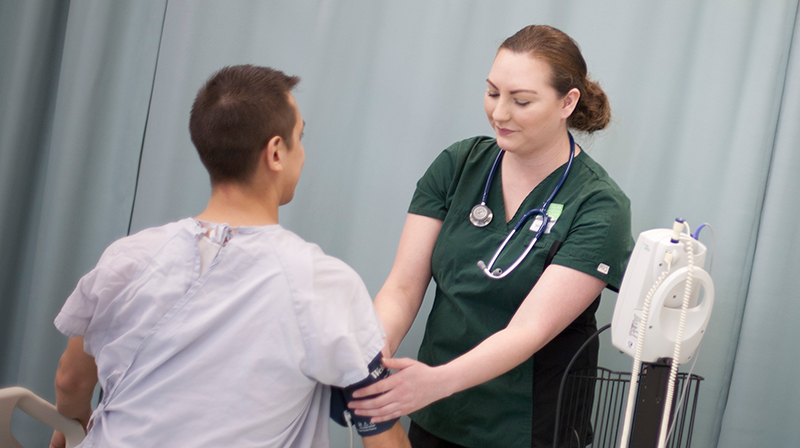Archive News 2021
Understanding and breaking down anti-Indigenous racism in health care

During the COVID-19 pandemic, the importance of quality health care in our lives has become clearer than ever. For many Indigenous people, however, Canada’s health care system continues to be a source of discrimination and pain. As we recognize the new National Day for Truth and Reconciliation (Sept. 30), Vancouver Community College (VCC) faculty and staff are pursuing specialized training to break down anti-Indigenous racism in health care and beyond.
Commissioned in 2020 by the B.C. government, the report In Plain Sight: Addressing Indigenous-specific Racism and Discrimination in B.C. Health Care [PDF] unequivocally confirmed that stereotyping, prejudice, and racist treatment are common experiences for Indigenous people (especially women) in health care at all levels. This, in turn, negatively affects the overall health and wellness of Indigenous peoples in B.C.
The report reviews the history of segregated, government-operated “Indian hospitals” which were established out of fear about Indigenous people passing on diseases to the settler population. These hospitals, which ran from the 1930s to 1980s, were not only underequipped but also frequently used as sites for medical research and experimentation.
The In Plain Sight report continues by analyzing the modern-day experiences of more than 9,000 people including many Indigenous patients and health care workers. The report shares repeated stories of Indigenous patients in medical distress who were presumed to be drunk, sent away, accused of being high or seeking drugs, denied access to washrooms, made to endure comments about being “sterilized,” and so on.
In the report summary, author Mary Ellen Turpel-Lafond stresses “the need for immediate, principled and comprehensive efforts to eliminate prejudice and discrimination against Indigenous peoples. This is essential if we aspire to an accessible and effective health care system.”
Indigenous Cultural Safety Training at VCC
In our continuing work to combat historical and systemic anti-Indigenous racism, VCC is pleased to share that 50 faculty members from the School of Health Sciences are registered to complete San’yas Indigenous Cultural Safety Training. This program, provided by the B.C. Provincial Health Services Authority (PHSA), is a set of facilitated online modules designed to increase understanding of Indigenous history and culture, enhance self-awareness, and give valuable context to anyone working directly or indirectly with Indigenous people.
VCC’s 50 health sciences faculty (and counting) will join the 100+ employees from across the college who have already completed the program.
“Instructors who have completed San’yas express having a much deeper understanding of Indigenous history and the role of cultural safety, not only in health care education, but in all instructional practices. It’s very encouraging to see this influencing the next generation of professionals,” says Reba Noel, Dean of Indigenous Initiatives at VCC.
A portion these new registrations were made possible by a grant from the B.C. Ministry of Tourism, Arts and Culture. Thanks to additional commitments by VCC’s Indigenous Education and Community Engagement department and VCC People Services, the college is continuing to offer San’yas training opportunities to staff and instructors.
Learn more about VCC’s commitment to Truth and Reconciliation by reading President Ajay Patel’s invitation to listen, learn, and heal together.
